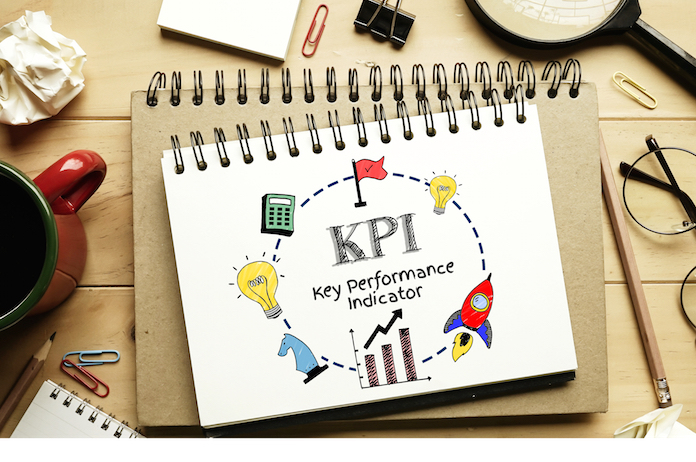The Essentials Of Great Marketing: Q&A With IMS's Peang Mann

The way companies communicate with their target audiences has changed drastically in the past few years—and continues to. To understand some of the most recent media trends unfolding in the Kingdom, we seek the opinion of Peang Mann, a seasoned marketing professional and Managing Director at IMS Consulting Group.
B2B: How would you assess the different media platforms in Cambodia?
Mann: In terms of commercial advertising TV remains the “King of Media” with over 20 channels actively broadcasting in Cambodia, many of which have nationwide coverage as well as ever-improving quality of content. TV also offers extremely competitive media buying rates when we compare the millions of potential viewers during peak time slots to other mediums. Digital penetration has massively increased over the past five years due to the expansion of 3G and 4G LTE mobile internet with a proliferation of news and entertainment websites and a huge boom in social media.
However, based on the most recent data from March 2016, social media platforms such as Facebook are very much limited to urban areas. The figures are very interesting and show that 90 percent of active social media users are based in or around Phnom Penh which is great for targeting urban consumers but effectively makes this medium ineffective at reaching people in rural areas—i.e. the majority of the population. This will change slowly over time as the economy and GDP per capita grows but we don’t believe in the short term that digital poses a direct challenge to TV when it comes to nationwide coverage.
B2B: How about print media and radio?
Mann: Print media remains quite resilient with new publications entering the market such as La Reine Peanich newspaper, and Khmer Times, as well as specialty magazines such as B2B Cambodia which are all well targeted to specific audiences. Also, most leading newspapers and magazines have adopted a crossover strategy between their print editions, their websites and social media which has significantly boosted the popularity of some publications which had previously lagged behind in the market. When it comes to radio there are so many stations across the country, but very few strong nationwide operators so this medium is largely effective when targeting province by province using key stations.
B2B: How would you advise companies go about developing an advertising or public relations strategy?
Mann: Before any company considers conducting advertising or public relations the most fundamental step they need to take is clearly listing down their business objectives and budget allocation that can be used to create a brief for prospective advertising agencies. Using an experienced agency is crucial for dealing with media, creative and regulatory issues but they need to fully understand a company’s product or service, unique selling proposition, price position, competitors, target consumer, distribution network and sales expectations to develop effective and cost-efficient media recommendations. Strategy and execution depend upon the quality and accuracy of the information provided by both the client and the agency so it is important to develop a mutual relationship built upon trust, respect and goodwill.

B2B: In what ways can companies effectively measure the success of their advertising/marketing campaigns?
Mann: It is essential for advertisers to first establish both internal and external key performance indicators (KPIs). To be frank, some of the best methods for measuring the success of a campaign will come from the company’s internal sales and distribution figures. While IMS provides clients with a variety of research services to evaluate advertising performance and gain key consumer insights we often find the most interesting nuggets of information emanates directly from the consumer to the point-of-sale to the wholesaler and back to the principal. Consumer attitudes at POS [point of sale] are extremely useful in providing areas for exploration via research studies regardless of whether the feedback is positive, negative or neutral.
B2B: How important is having a web presence in Cambodia?
Mann: At minimum, any company looking to capture future market share in Cambodia needs to at least have listings in online directories such as the Yellow Pages or B2B Cambodia. Aside from that, it depends whether their business activities are urban or rural—any professional company trying to establish themselves and their brands in Phnom Penh and other key urban areas absolutely need to develop online visibility. Before deciding how much to spend on a website it is important to clarify why you need a web presence (i.e. for sales conversions, brand awareness, reaching new target audiences, etc) in order to maximise your return on investment.
B2B: Why are companies opting for a Facebook presence over having their own websites and what are the pros and cons of this?
Mann: Many companies in Cambodia recognise Facebook as the quickest way to launch their brands online and access the largest social network in the country, which offers various methods of reaching targeted audiences (albeit almost entirely in or nearby Phnom Penh and a few much smaller urban areas). The value proposition of Facebook is attractive but it is crucial to understand they retain full control over your page and content. At any time in the future they reserve the right to delete your page, close your account or hold your company directly liable for anything that breaches their terms and conditions. Based on the activities of many brand pages in Cambodia it is clear a large percentage of companies have limited understanding of Facebook’s strict rules.
Eventually a lot of them will be suspended unless they change the way they market their brand content. This is not just related to local companies but even some of the largest multinational brands in this market also manage their Facebook pages in very risky and, in some cases, unethical ways. It is counter-productive to invest so much time and energy in social media like this and it would be advisable for certain companies to allocate a moderate budget to hire an advertising agency with significant digital experience than to simply assign a staff member to create brand pages that may end up deleted or undermine your reputation by posting unsuitable content.
The optimum way of establishing an online presence in any market it to hedge your bets by developing both a website and social media page – Facebook remains the absolute star of social media in Cambodia and is also the most popular website in the country having surpassed Google some time ago. The core requirement for online success is to never launch a website or social media page until you or your advertising agency develops a comprehensive strategic plan identifying your business objectives, target audience and KPIs to evaluate the results of your activities.
This interview has been edited for length